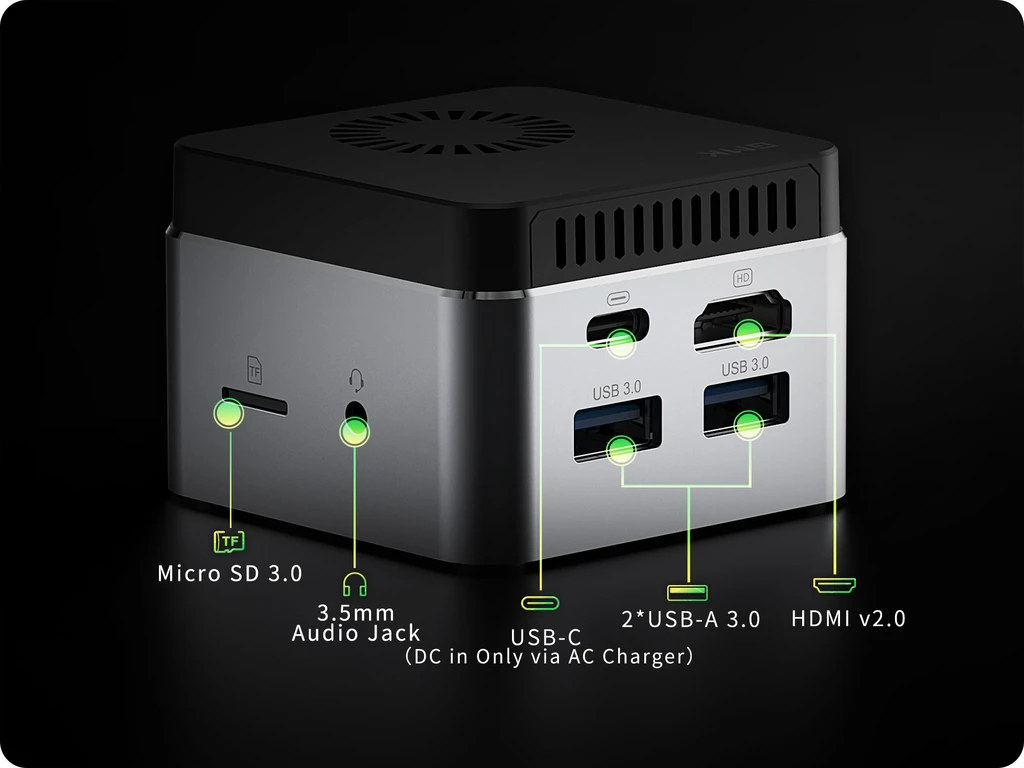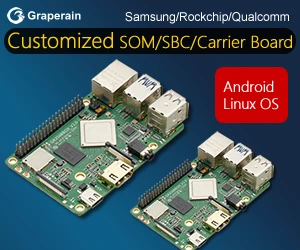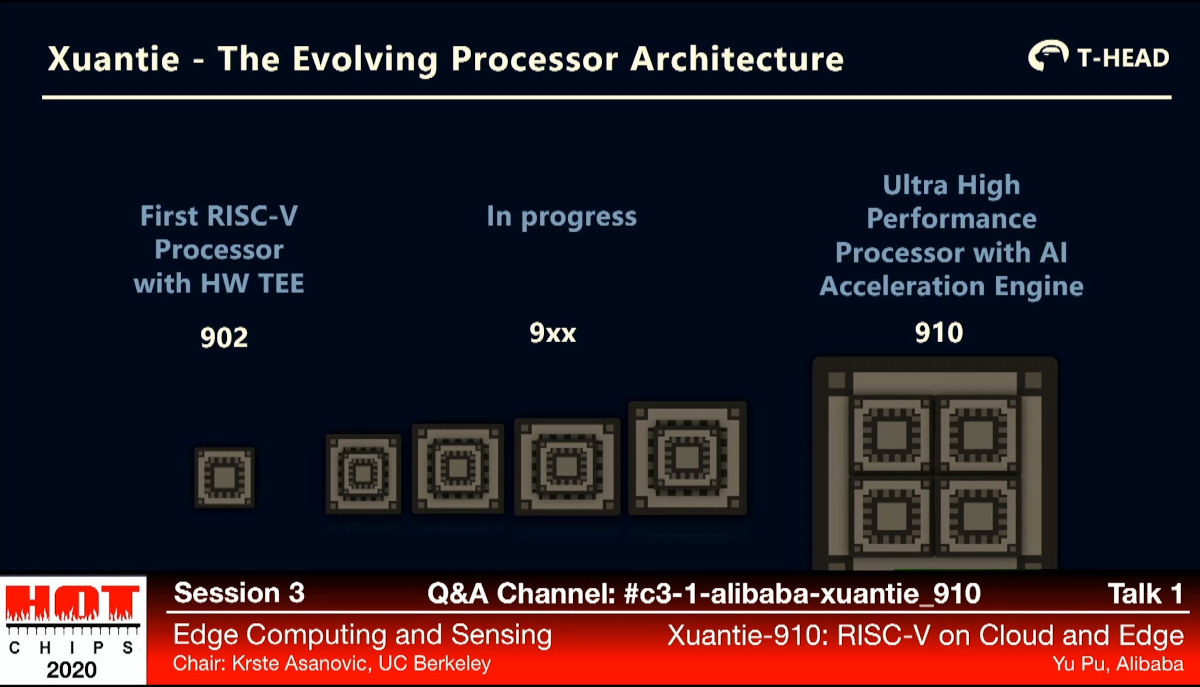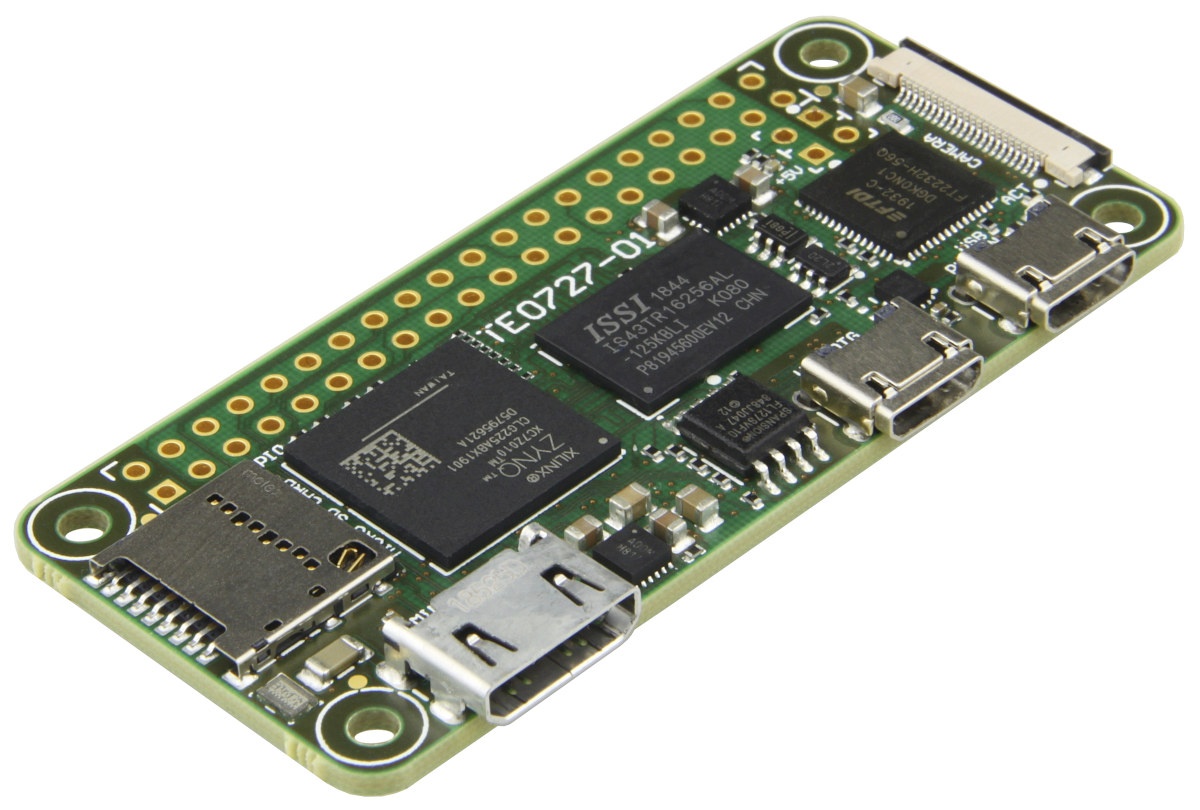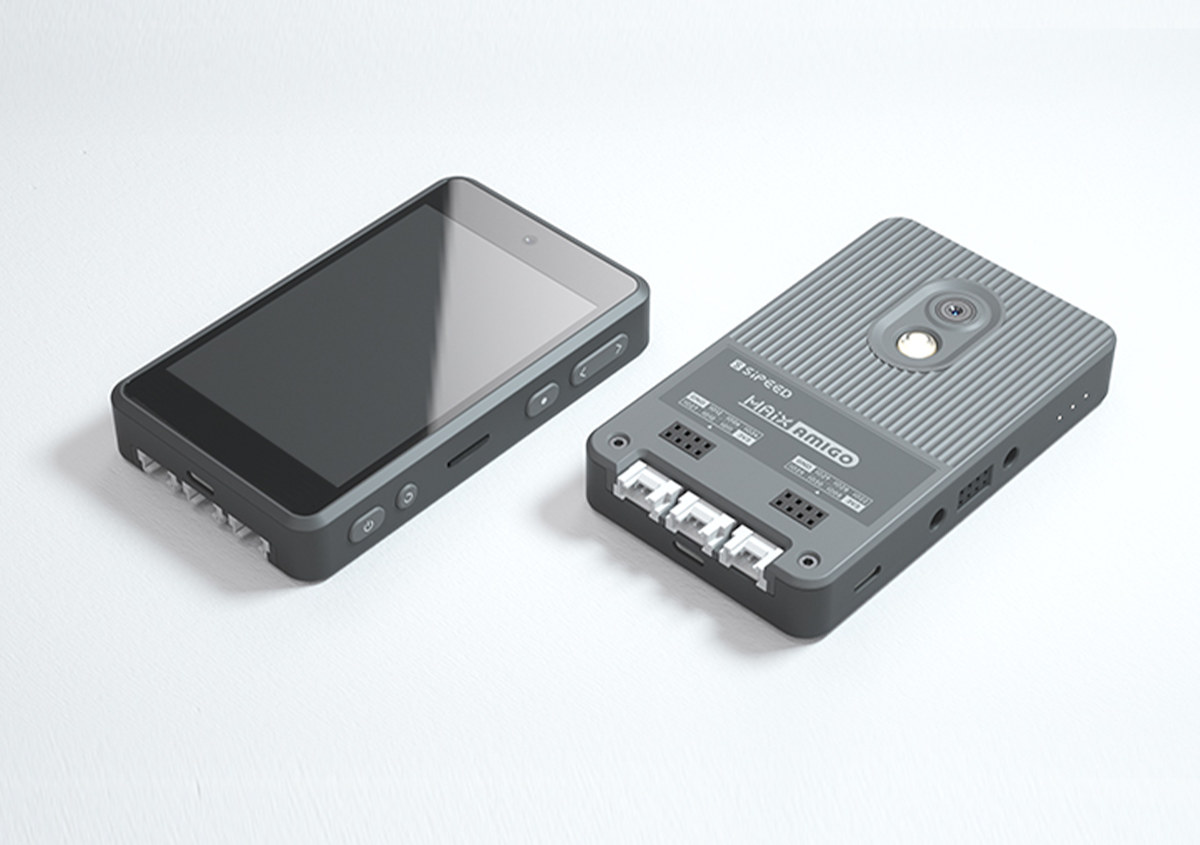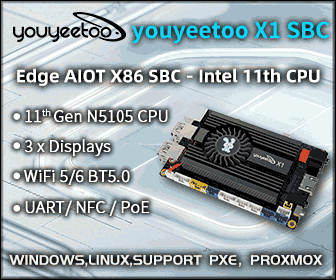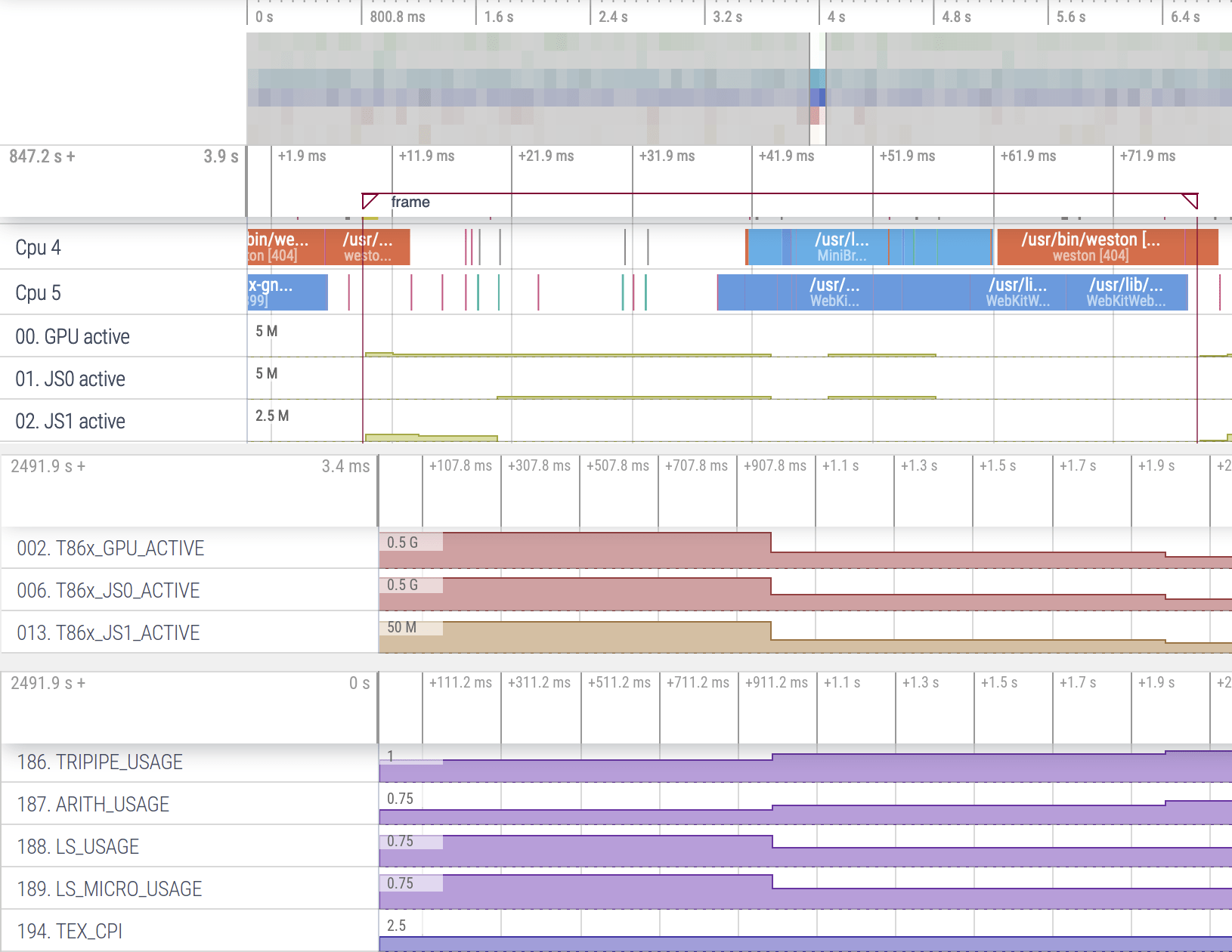Those are challenging times for Huawei with the company having to stop developing and manufacturing Kirin processors, and their temporary license to get support from Google has recently expired. But necessity is the mother of inventions, so Huawei has stocked up on chips to give it time to find alternatives and is developing its own software ecosystem. But app developers won’t simply spend time working on apps for the platform without some incentive, so Huawei has launched the HMS App Innovation Contest with one million dollars in prize money. HMS stands for Huawei Mobile Service and looks like the equivalent of GMS, with the app store being called “HUAWEI AppGallery”. The contest is open to developers in most countries, but unsurprisingly there’s no option for developers in North America (USA/Canada). However, the contest is global and it still looks possible to get a Huawei ID from any country. The schedule […]
GMK NucBox Palm-Sized Mini PC Launched on Indiegogo with 8GB RAM, Up to 512GB SSD
Earlier this month, we wrote about GMK mini PC as an alternative to Chuwi LarkBox with a more powerful Intel Celeron J4125 processor coupled with 8GB RAM and 128GB SSD. The tiny computer now has a complete name “GMK NucBox”, and just launched on Indiegogo with rewards starting at $179. GMK NucBox specifications: SoC – Intel Celeron J4125 quad-core Gemini Lake Refresh processor @ 2.0 / 2.7 GHz with Intel UHD Graphics 600; 10W TDP System Memory – 8GB LPDDR4 Storage – 128GB, 256GB or 512GB M.2 2242 SSD, MicroSD card slot Video Output – HDMI 2.0 up to 4K @ 60 Hz Audio – 3.5mm audio jack, digital audio via HDMI Connectivity – Dual-band 802.11 b/g/n/ac WiFi 5 2×2 MIMO up to 867 Mbps and Bluetooth 4.2 USB – 2x USB 3.0 ports, 1x USB Type-C port for power only Misc – Power button, cooling fan with “almost no […]
More Details about Alibaba XT910 64-bit RISC-V Core
Alibaba unveiled XuanTie 910 16-core RISC-V Processor last year with few details except it targetted high-performance 5G, AI, and autonomous driving applications. The company has now provided more details about Alibaba XuanTie 910 (aka XT910) processor during the virtual Hot Chips 2020 conference, and he notably compared the RV64GCV core found in the processor to Arm Cortex-A73 core. Alibaba XT910 main features and specifications: CPU – Up to 16x 64-bit RISC-V (RV64GCV) cores with RISC-V Vector extension and custom Turbo extension in four clusters of four cores; 12-stage out of order; Coremark: 7.1 per MHz Cache – 32KB or 64KB I/D cache per core, up to 8MB L2 cache per cluster FP16-FP64 floating-point unit Vector Computing Unit (aka Vector Engine) for AI acceleration Memory Management – Sv39 MMU + 8/16 PMP Interrupt Controller – Clint + PLIC Process – Final: 12nm FinFET; engineering samples: TSMC 28nm HPC Alibaba RISC-V Turbo […]
ZynqBerryZero Brings Xilinx Zynq-7010 FPGA SoC to Raspberry Pi Zero Form Factor
Trenz Electronic introduced ZynqBerry in 2017 as a Xilinx Zynq FPGA board following Raspberry Pi 2/3 Model B form factor, and the company has now just launched another Raspberry Pi inspired FPGA board with ZynqBerryZero following Raspberry Pi Zero form factor. ZynqberryZero is equipped with a Xilinx Zynq-7000 series FPGA & Arm Cortex-A9 SoC combined with 512 MB RAM and 16MB flash, and offers all Raspberry Pi Zero ports namely a 40-pin GPIO header, two micro USB ports, a mini HDMI connector, a CSI connector, and micro SD card slot. ZynqBerryZero specifications: SoC – Xilinx Zynq XC7Z010-1CLG225C with dual-core Cortex-A9 clocked up to 667 MHz, FPGA fabric with 28K logic cells, 2.1Mbit block RAM, and 80x DSP slices System Memory – 512 MB DDR3L SDRAM Storage – 16 MB Flash memory, MicroSD card slot Video Output – Mini HDMI connector, type C Camera – CSI-2 connector USB – 1x Micro […]
Puffin Cloud Learning Renders Web Pages Up to 14 Times Faster on Raspberry Pi
The Raspberry Pi is a great little Arm Linux board designed for STEM education. But with many children now have to learn remotely, the board would be useful as a computer replacement, but users may find web browsing on the Raspberry Pi to be rather sluggish. Puffin Cloud Learning is designed just for that use case and promises to make the Raspberry Pi SBC much faster for web browsing, and they tested several websites, and for instance, CNN website loads almost 14 times faster with the Puffin Internet Terminal compared to using Chromium only. How is that possible? Simple: the Raspberry Pi is simply used as a thin client with complex web rendering performed on the company’s encrypted cloud servers where a JavaScript engine is used to pre-process and compress web pages sent to the Raspberry Pi. The company also claims Puffin Internet Terminal is 1200% faster than Chromium using […]
Sipeed Maix Amigo is a Portable 64-bit RISC-V AI Development Kit with Display and Cameras
Earlier this year, Seeed Studio introduced Wio Terminal a portable Arduino devkit with an LCD display, and expansion connectors and headers. The company is now selling a similar looking devkit but for different applications with Sipeed Maix Amigo portable 64-bit RISC-V development kit powered by Kendryte K210 RISC-V AI processor and equipped with an LCD display, two cameras, a few buttons, and several I/O headers and Grove connectors. Sipeed Maix Amigo specifications: SoC – Kendryte K210 Dual-core 64-bit RISC-V (RV64GC) processor with FPU @ 400 MHz (overclockable to 500MHz), 8MB SRAM, built-in AI accelerators for video and audio Storage – 16MB Flash, MicroSD card slot up Display – 3.5-inch TFT capacitive touch screen display with 480×320 resolution Camera VGA front-facing camera up to 30 fps (GC0328 sensor) VGA rear camera up to 60 fps (OV7740 sensor) Audio – Build-in microphone, optional 6-mic array USB – 1x USB Type-C port for […]
Review of FamiSafe Phone Tracking & Parental Control App (Sponsored)
CNXSoft here. I’ve been tasked with reviewing Famisafe parental control app for Android and iOS acting both as a parental control app and phone tracker app and designed for parents who want to track their kids’ location and better control when to use the phone and what content they may access. The first thing to get started is to download the free trial on either Android or iOS. I actually downloaded both versions for FamiSafe for this review, since I used Huawei Y9 Prime 2019 (Android 10) as the “parent” smartphone, and an iPhone 6 as the “kid” phone. Famisafe Initial Configuration We’ll have to start with the “parent” phone. After a welcome screen explaining some of the main features including offensive content detection, device & app usage rules, web filter, etc.. you’ll be asked to select whether it’s the parent or kid device. Once we select “Parent” we’ll be […]
Perfetto Profiler Now Supports Mali GPU Hardware Counters via Panfrost
Perfetto is an open-source system profiler, app tracer, and trace analyzer for Linux, Android & Chrome platforms, and user-space apps. The program can already visualize CPU and memory usage, as well as power consumption. GPU support is more limited with the program only capable of sampling the GPU frequency when the driver outputs that information via ftrace. When Perfetto is also extendable thanks to a Tracing C++ SDK that “allows userspace applications to emit trace events and add more app-specific context to a Perfetto trace”. Collabora made use of the tracing SDK to add support for Mali Midgard GPU performance profiling in gfx-pps project using the Mali GPU hardware counters exposed via Panfrost open-source Mali GPU driver. After following the installation instructions, you’ll be able to run the following executables for tracing and profiling: tracedtracing service. traced_probes OS probes service. perfetto command-line tool for recording traces. producer-gpuproviding the Panfrost data […]


